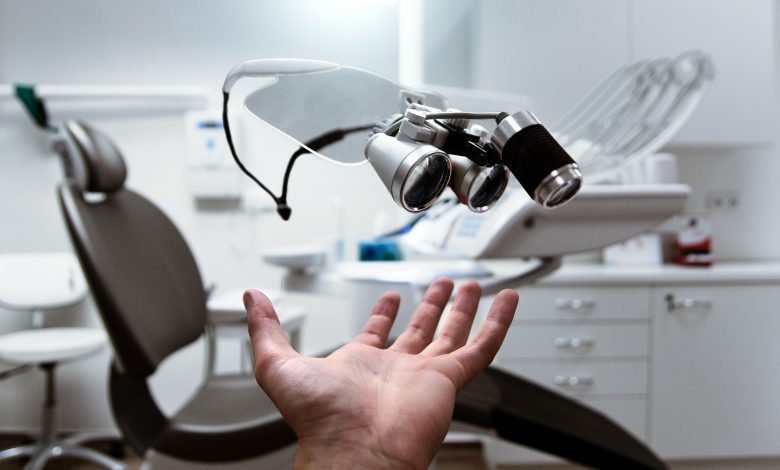
Do you live with depression? Everywhere you go you, have you tired of her following you? Wondering how to overcome it?
I understand you, having experienced it myself. I know how much it disrupts thoughts, emotions, and behaviors. How much it diminishes the quality of life and is the source of a lot of suffering.
But tell yourself that you are not alone, since 11% of Canadians and 16% of Canadian women will suffer from depression during their lifetime.
Fortunately, in most cases, there are effective treatments. And to help you, precisely, regain control of your life, I give you here my 7 tips to learn how to manage depression.
Tip #1: Eat Healthy and Tasty Meals
If you suffer from depression, you probably lack energy and motivation. When this happens to you, I suggest you prepare very simple meals such as a sandwich, an omelet, pre-cooked chicken, etc.
Don’t feel guilty if you choose to go to a restaurant that is just healthy enough (e.g., Van Houtte, Basha, Muffin Plus, etc.). It’s not always easy to settle for this ease, but it’s the key. Loving each other even if you don’t prepare an impeccable three-course menu.
When the energy and motivation return, it’s time to embark on more complex culinary challenges. You can prepare recipes giving several servings and which can be easily frozen (e.g., lasagna, spaghetti, soups and stews, chili, etc.).
Foods rich in omega-3 are obviously a must. You can try including fish (especially salmon and mackerel), nuts, leafy green vegetables, and eggs in your diet.
But so is the pleasure, especially when the mood is pointing down. Whether you eat meat or are vegetarian, listen to your little voice and eat what makes you feel good.
Tip #2: Take Care of Your Appearance
Depression sometimes causes us to neglect our appearance. We are tired, unmotivated, indifferent to everything, so we pay less attention to our bodies.
But is it conducive to recovery? I would say, not really. Recovery is a bit like a marathon, it takes effort to get to the finish line.
So, you must try to take care of your look. And it gives something to do. For example, it improves the image we have of ourselves.
The more positive this image, the more vitality you will have in your daily activities, which will help you assert yourself and relate to others. And it feels particularly good to boost your self-confidence at a time when you feel like you have no value.
But how to do it?
Taking a shower regularly (in my case it’s every day) is a good start. It helps to wake up when the mind is foggy in the morning. Take the time to hydrate your skin with cream, clean your teeth, do your hair, wear perfume, and apply light makeup.
Put on clean and varied clothes, which does not mean that your clothes must be expensive, rather they must be in good condition and chosen with care. From time to time, you can also dare to change your appearance.
Tip #3: Get moving!
The benefits of physical activity in the prevention and treatment of depression are well documented. Indeed, moving makes us proud, improves the quality of our sleep, and allows us to get out of the house.
It has also been shown that people with mental transformation health problems who engage in physical activity have a lower risk of relapse. And the greater the pleasure associated with sporting activity, the greater the psychological benefits.
But when you’re depressed and in a sad mood, it’s sometimes hard to start a physical activity program and stick with it. I know something!
Therefore, walking can become a wise choice of activity. In addition to being natural to humans, it is accessible to all and a good remedy against fatigue. It is also an excellent means of active transportation.
Tip #4: Consult for his well-being
Professional support is essential when you are suffering from depression. Discuss your situation with your family therapy near me or a mental health professional.
You will be able to express how you feel and address the issue of treatments. Currently, the most common are antidepressants, psychotherapy, or both.
Antidepressants (there are different types) can rebalance certain neurotransmitters present in the brain: serotonin, norepinephrine, and dopamine.
Do not hesitate to take an active role and ask questions about antidepressants to the doctor and pharmacist. They can give you more details about the benefits and risks of medications (e.g., side effects, specific medical conditions, etc.).
Psychotherapy is another ally in the management of depression. There are various psychotherapeutic methods, but the best known is cognitive-behavioral therapy. It makes it possible to establish links between events, thoughts, emotions, and behaviors.
This method can help you reduce your relationship difficulties, gradually activate yourself in activities, and reduce your negative thoughts (cognitive distortions).
Tip #5: Create a Home Where You Feel Good
Feeling hopeless because of depression? Does the mere thought of cleaning put you off? It’s normal. So why not separate the tasks, such as cleaning the bathroom one day, sweeping another day, and so on?
In the marathon of recovery, it is necessary to take action to improve your mood. It means making the effort to maintain your home to promote positive energy and good quality of life. It means creating a living environment where you can’t wait to get together at the end of the day.
You can air your home regularly and purify it, for example, with an essential oil diffuser. Keep your home tidy as much as possible and avoid overcrowding rooms. I also suggest avoiding dark corners and adding multiple sources of soft lighting.
Decorating your home can even become a pleasant hobby. Adding photos, paintings, and drawings that we like is a good way to chase away depressive feelings. Finally, having a pet fights loneliness very well.
Tip # 6: Surround yourself well
Social support is a person’s impression of feeling supported and supported by those around them (family, friends, colleagues, self-help groups, community organizations, etc.). It is an essential protective factor when we are faced with trials.
When we are depressed, we tend to withdraw into ourselves. We no longer want to talk to those around us out of fear of not being understood, out of shame, fatigue, or out of fear of being a burden on others.
We refuse invitations and our social relationships diminish. This progressive isolation becomes a veritable vicious circle because it further fuels the depressive state. Depression means that we then must fight to maintain our social relationships.
If, at the end of this battle, you have abandoned people in your social network and this situation saddens you deeply, you can try to regain contact gradually, while getting help from a professional.
If your paths have separated and reconnecting seems too difficult for you, I suggest that you rebuild your social network and encourage new encounters (e.g., by signing up for activities, going to an alternative mental health resource).
With your current relatives, do not hesitate to ask them from time to time for activities. Go gradually, without putting pressure on yourself. For example, you can initiate meetings in pairs, in threes, in small groups, etc.
Tip #7: Maintain a Balance in Your Occupations
Depression often leads to a loss of identity. For example, if you’re not working, you need to redefine yourself by mobilizing your strengths and setting goals.
But it doesn’t always work the way we would like maybe we spend a lot of time being inactive, sleeping or eating. Maybe we’re isolated. In short, we are having difficulty rebuilding ourselves.
Currently, I advise you to analyze your occupations. What would a balance between your different activities look like? What factors in your environment limit or promote this balance?
Do your occupations promote social interaction and improve your self-confidence? Do you do activities that are both calm and stimulating?
Are you active in learning (eg reading) even though you have stopped studying? Do you practice a productive activity (ex: voluntary work) even if you have stopped your job? What place do you give to hobbies in your life?
These questions are a starting point for developing your action plan. You can also ask an occupational therapist to help you find a new balance.



